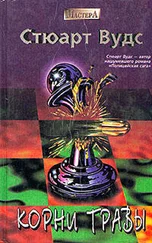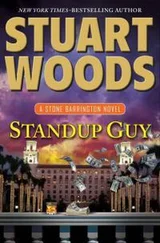“That is disgusting,” Felicity said.
“Do you know, Stone,” Rose suddenly interjected, “the brigadier asked me if you were gay.”
Felicity and Lance burst out laughing.
“Don’t worry,” Rose said, placing a hand on Stone’s arm, “I’ll give you a good report.”
More laughter.
They were on port and Stilton when Lance surprised Stone, and possibly everyone else, by asking Felicity, “Do you wish the brigadier returned to your service in one piece?”
“My desires conflict with my duty,” Felicity said without missing a beat, “as it is seen to be by my betters.”
“You surely must not wish to have your service used as a dumping ground for the unsuitable,” Lance said.
“Certain members of the government find us useful for that purpose, at least on this occasion. What would you do in my position, Lance?”
“My service would regurgitate that man into the lap of whoever sent him to me.”
“We British are less direct,” Felicity said, “especially when dealing at the ministerial level.”
“Do you suspect the foreign minister? Specifically, I mean, not as part of a group.”
“I would not be shocked to find his fingerprints on the transfer document.”
“Put another way: Do you think the FM has something to fear from his freshly minted brigadier?”
“The FM has been married to the same woman for more than thirty years, and during that time, has bestirred himself to sire a single son and heir, now twenty-eight, a chinless wonder who is employed in the nether ranks of his ministry, as a kind of greeter and handler of visiting dignitaries from beyond Calais.”
“And what has been scribbled in the margins of your file on the FM over the years?”
“Let me put it this way,” Felicity said. “There have been no rumors of women in his life.”
“I see.”
“I expect you do, Lance.”
Lance sipped his port and nibbled at his cheese. “Is there a member of his staff who has outlasted all the others over time?”
Felicity thought about it. “There is,” she replied. “One Sir Ellery Bascombe, a baronet, who was in the FM’s class at Eton — and who has personally attended him ever since the fourth form. I’ve heard them referred to, once or twice, as ‘the old married couple.’”
“And does Sir Ellery have any naval connections?”
“After Eton, the young man was not able to find a place at a suitable university, so the family sent him off to Dartmouth, where he was a classmate of Timothy Barnes — and Roger Fife-Simpson. He graduated, after a fashion, but was not commissioned, so the FM, then a party functionary, took him in. He has been a body man to his mentor, now the FM, in one form or another, since that time.”
“Does he travel with the FM?”
“Nearly always.”
“Ah,” Lance said. “Perhaps you have found your way to the heart — or the jugular — of the foreign minister.”
Stone was enjoying an upward view of Rose while on his back in bed, when her mind seemed to wander.
“Why, do you think,” she asked, in the midst of regular movements, “that Lance Cabot would speak as he did about the brigadier in our presence?”
“Yours and mine?” he asked.
“Yes. I can well understand why he would make those remarks to Felicity in private, but why also to you and me?” She stopped moving.
“Pardon me,” Stone said, “but may we delay the discussion of Lance’s motives, which are always obscure, for a few minutes?” He gave her a little thrust to bring her mind back to the business at hand.
“Of course,” she said, responding to his action. She concentrated her mind until they had both reached the peak of their desire and then descended rapidly.
“Now,” she said, tucking her head into his shoulder, “where were we?”
“Lance’s motives,” Stone replied, still panting.
“Which are always obscure?”
“Always. I think it’s the nature of his work that causes him not to want anyone to know all of what he is thinking at any given moment.”
“What do you think he was thinking?” she asked.
“First,” Stone said, “I think he wanted to give Felicity the ammunition she might need to deal with the brigadier.”
“Obviously. And beyond that?”
“Beyond that is the no-man’s-land of Lance’s consciousness.”
“I think Lance knows the brigadier much better than he has admitted to us,” she said.
“That’s an interesting observation,” Stone admitted.
“After all,” Rose said, “he did offer to dismember the man.”
“I think that was most probably metaphorical.”
“Do you think Lance incapable of cutting someone into pieces?”
“Personally? Probably not. I do think him capable of ordering someone else to do it, though in the subtlest sort of way.”
“So do I,” Rose replied.
“On such short acquaintance?”
“I’m rather good at making accurate assumptions about people on short acquaintance,” she said. “You, for instance.”
“How so?”
“I learned a good deal about you from the way you handled Fife-Simpson while flat on your back in a hospital bed.”
“I confess, I don’t like being pushed around.”
“Hardly anyone does, but you engaged him in a way he was unaccustomed to, and set him back on his heels. That requires character. But you didn’t engage him physically.”
“Well, I thought I had a broken foot,” Stone said.
Rose laughed. “Discretion is a part of character, too, as well as valor.”
“I’ll try to remember that.”
“Tell me, have you often engaged in physicality?”
“Didn’t we just do that?”
“I was referring to fighting.”
“I was a police officer for many years, and as such, I had to be ready to meet physical resistance. People don’t like being handcuffed and stuffed in the back of a police car, and they often resist.”
“How did you handle that?”
“As quickly as possible. I learned early on that, in a fight, the first blow is very important. Properly struck, it discourages further argument.”
“That’s good advice,” she said. “I’ll keep it in mind.”
“Are you planning to fight someone?”
“Not at the moment, but you never know.”
“I’ll tread carefully around you, then.”
“Not too carefully, please.”
And a moment later, they were back at it.
Lance finished a late lunch, got out his cell phone, tapped in the code to scramble the signal, and called CIA headquarters.
“Meg Tillman,” a husky voice said.
“Is our guest still with us?”
“He is, and bored rigid, I should think. He plans to drive back to D.C. at midday.”
“Before he departs, take him down to Camp Peary, equip him with protective gear and a knife of his choice, and introduce him to Wu. When he’s done there, send him on his way with a hearty handshake and a slap on the back.”
“Understood,” she replied. “I think I speak for all the people he’s met when I say, ‘good riddance.’”
Lance laughed, then hung up.
Meg put away her phone and went to find the brigadier, who was in the break room, finishing a cup of tea. “Do you have time for one more visit?” she asked.
“To where?”
“Our training facility. The director thought you might enjoy meeting someone there.”
Fife-Simpson sighed, put down his teacup, and followed her from the building. They crossed a hundred yards of well-kept lawn and entered another building.
“We’ve heard that you prefer the knife as a weapon,” Meg said, “and we thought our approach to attack and defense might interest you.”
“Of course,” Fife-Simpson replied.
Читать дальше












